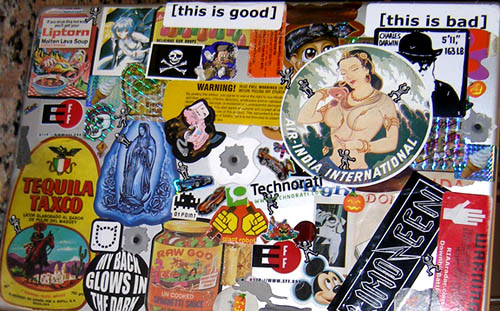

 subscribe
subscribeThe Republican-controlled Congress delivered a long-sought victory to the gun industry when the House of Representatives, with considerable Democratic support, voted to shield firearms manufacturers and dealers from liability lawsuits. The bill now goes to President Bush, who has promised to sign it. Yes we hope so.
The gun liability bill has for years been the No. 1 legislative priority of the National Rifle Association, which has lobbied lawmakers intensely for it.
Its final passage, by a vote of 283 to 144, reflects the changing politics of gun control, an issue that many Democrats began shying away from after Al Gore was defeated for president in 2000.
"It's a historic piece of legislation," said Wayne LaPierre, the N.R.A.'s president, who said the bill was the most significant victory for the gun lobby since Congress rewrote the federal gun control law in 1986. "
As of Oct. 20, the Second Amendment is probably in the best shape in this country that it's been in decades." Backers of the measure say it is necessary to keep the American arms industry in business, while opponents say the bill deprives people of a legitimate right to sue. Mr. DeLay issued a statement praising the gun bill vote as an important step toward revamping the nation's tort law system.
The Electronic Freedom Foundation (EFF)has cracked the code used to secretly tag documents printed by color laser printers.
"At the request of the United States Secret Service, manufacturers developed mechanisms that print in an encoded form the serial number and the manufacturer's name as indiscernible markings on color documents," the EFF's white paper says.
The secret markings can be found by anyone with a blue light and a magnifying glass. The design makes it easy for governments, or anyone else to spy. Since anyone with common tools can view the printer's encoding, it could put important anonymous speech at risk. One can imagine a scenario in which one person creates two documents one with that person's name on it and the other anonymous. If another individual were to use a blue light to compare the two documents, the anonymity of the second document would disappear. That could be bad in a business setting or from an anonymous political speech point of view.
The EFF said it has identified similar coding on pages printed from virtually every major printer manufacturer though it has so far managed to crack the codes for only one Xerox model.
This is so best story of October 2005:
Military gambling is a big business. About $2 billion flows through military-owned slot machines at officers' clubs, activities centers and bowling alleys on overseas bases each year. Most flows back out as jackpots, but 6 percent remains with the house, about the same ratio as in Las Vegas.
Each year, the armed forces take in more than $120 million from on-base slot machines and $7 million from Army bingo games at home. These funds help pay for recreational programs for the troops.
Freeopen, no money, and all the way up to the “Ideastore†- impressions.
With slide bitter lemons on the lips of the originators and activists, ended the open congress: see we did again something valuable for free, means for nothing, means for not the adequate amount of public money we deserve to get. And yes you are right. Competition is tough between Londonistan and Londinium about budgets which are limited and a lot of folks need to be paid and lets face it, its was not a charity event for homeless Net artists.

"A new paradigm for the new times is needed and in order to do that we need to take a step back, break the concepts to reconstruct a new one. We, the people from the Third World, in this sense, are ahead of the others, as we are already back there, all we need is to move forward". With these words, Claudio Prado, the digital policy coordinator of the brazilian ministry of culture, opened the night, where, oddly, ideas from the tropic country were highlighted as examples for democratic development for the First World countries, United Kingdom in particular.
Last thursday at the RSA, the Royal Society for the encouragement of Arts, Manufactures & Commerce, the Adelphi Charter was launched. A distinguished group of international experts had been discussing this charter for more than a year. It is hoped that this charter will influence policy making decisions by governments towards a more open and sustainable environment regarding copyright, patents and other forms of so called intellectual property.

This is your last chance to see the Low-fi exhibition of net art commissions which opened during the Edinburgh Festival. This is the third in a series of exhibitions, in recognised UK galleries which introduce some aspects of networked media art to a more established art audience.
1 September 2005
Tutors – Armin Medosch and Jim Wood, and students – Jee Hyun Oh (Korea) and Shan Yin Hung (Taiwan) from the post-graduate MA programmes at Ravensbourne College of Design and Communication in London, will be at the Ars Electronica Festival in Linz, Austria from 1-6 September 2005
Professor Karel Dudesek, the course leader, will also present the Prix Forum "Net Vision" which takes place on Monday 5 September from 10.30 - 13.30. There will be presentations of the winning projects - “Processingâ€, “ubermorgen.com†and “yugop.com†- followed by an open discussion.